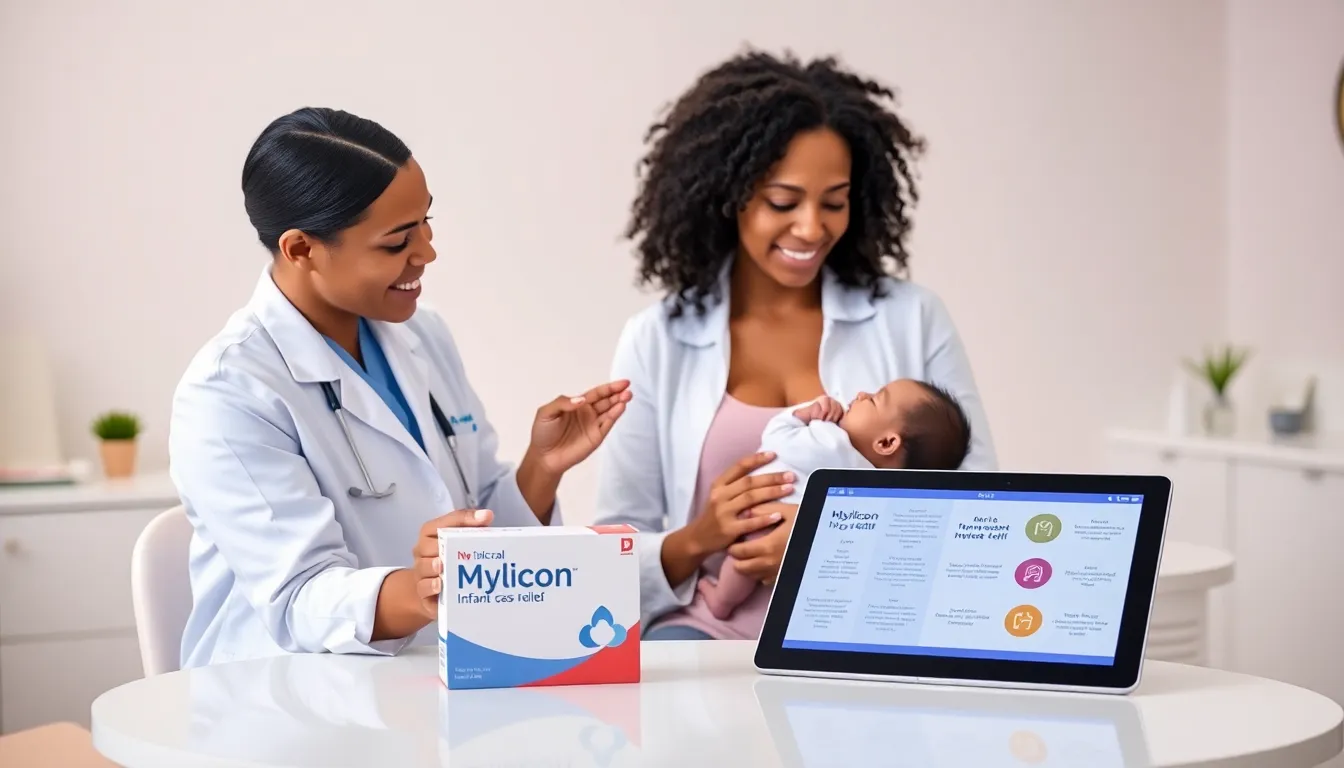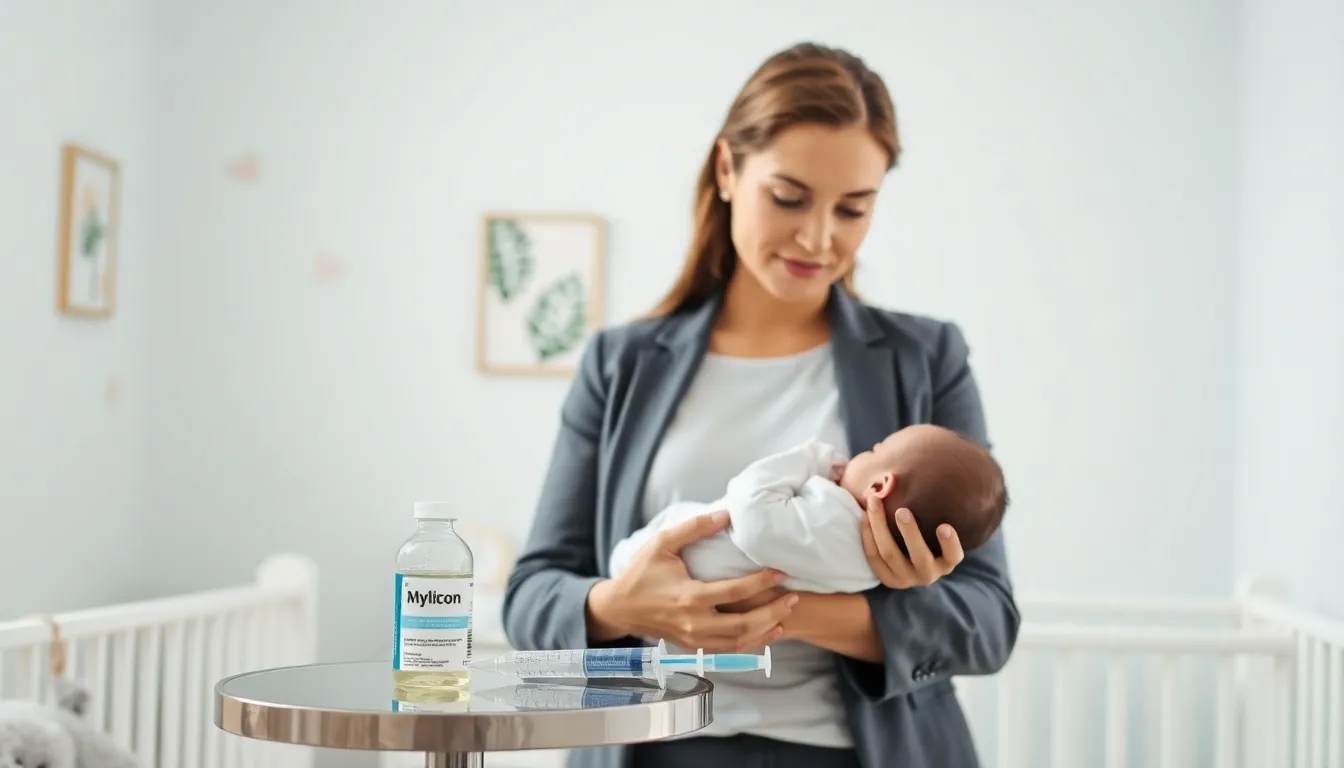When a newborn starts crying like they’re auditioning for a role in the next big dramatic film, anxious parents might wonder: is Mylicon safe for newborns? With so many products on the market, it’s easy to get overwhelmed. Fear not. In this text, we’ll explore everything you need to know about Mylicon for your little one, and trust us, we’ll keep it light and informative. So grab your favorite beverage, and let’s jump into the world of baby gas relief.
Table of Contents
ToggleUnderstanding Mylicon

How Mylicon Works
Mylicon is a simethicone-based medication that helps relieve gas in infants. When newborns ingest air while feeding or crying, it can lead to discomfort and excessive crying. Mylicon works by breaking up gas bubbles in the stomach and intestines, making it easier for little ones to expel gas and find relief.
Key Ingredients of Mylicon
The primary ingredient in Mylicon is simethicone. The good news? Simethicone is considered safe for use, even for newborns. It doesn’t get absorbed into the bloodstream, which means it primarily acts locally in the gastrointestinal tract. Also, Mylicon is free from harsh additives, which is a plus for worried parents.
Common Use Cases for Newborns
Signs Your Newborn Might Need Mylicon
Parents often face the challenge of determining whether their baby’s fussiness is due to gas. Common signs include frequent crying, arching their back, clenching their fists, or visibly straining while trying to pass gas. If you notice these behaviors, Mylicon might be worth a shot to provide comfort to your baby and peace of mind for you.
Recommended Dosage for Newborns
When it comes to dosage, always consult your pediatrician first. Generally, the recommended dose for Mylicon for newborns is 0.3 to 0.6 mL administered after feedings or at bedtime if needed. Parents should carefully read the instructions on the packaging to ensure their little one gets the correct dosage without overdoing it. And remember, a vigilant eye ensures us we’re on the right track.
Safety and Side Effects
Consulting a Pediatrician
Before introducing Mylicon into your newborn’s regimen, consulting a pediatrician is vital. They can provide tailored advice based on your baby’s specific health needs. While most parents report no significant side effects, there’s nothing like professional guidance to alleviate those nagging concerns.
Possible Allergic Reactions
While Mylicon is generally safe, it’s essential to keep a lookout for any signs of allergies. In rare cases, some infants might react to specific ingredients. Symptoms could include hives, itchiness, or swelling. If you notice any of these signs after administering Mylicon, discontinuing use and consulting a healthcare professional as soon as possible is crucial. Remember, being proactive can prevent complications and give you peace of mind.
Alternatives to Mylicon
Parent Experiences and Testimonials
Many parents find Mylicon effective, but if you’re not thrilled with it or unsure, other options exist. Some parents opt for natural remedies such as tummy massages, warm baths, or even specific feeding techniques to reduce gas. Exploring different alternatives might bring you closer to a solution that suits your newborn’s needs. Don’t hesitate to reach out to other parents for their insights: experiences and testimonials can be incredibly valuable in navigating parenthood.



